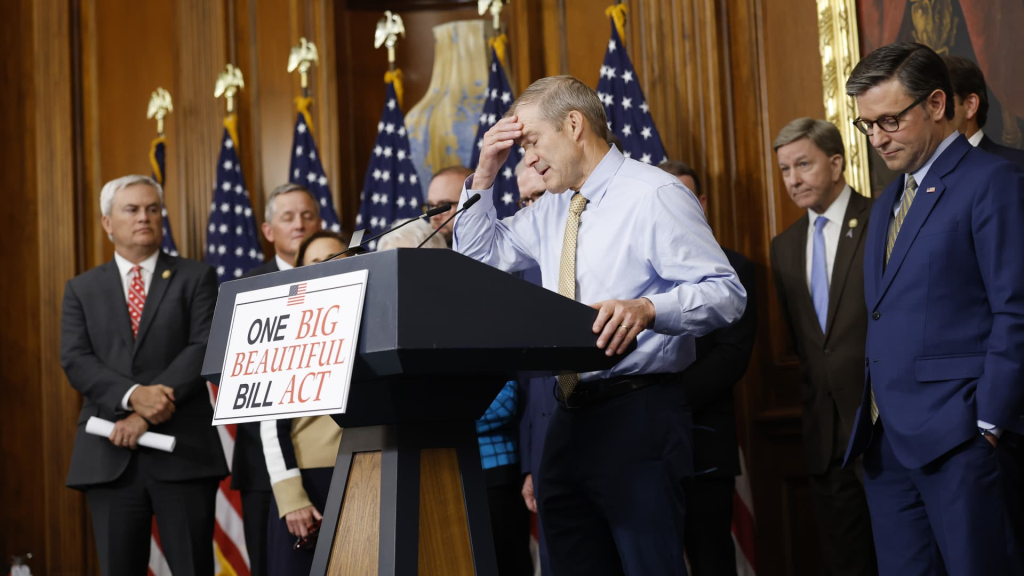A recent analysis by the nonpartisan Congressional Budget Office (CBO) has revealed that President Donald Trump’s proposed legislation, often referred to as the “big, beautiful bill,” could increase the national debt by $2.4 trillion over the next decade.
The legislation, which was approved by House Republicans last month, is projected to result in a $3.7 trillion reduction in federal revenues, accompanied by a planned decrease in spending amounting to $1.3 trillion, according to the CBO’s latest findings.
During an appearance on Finance Newso’s “Squawk Box,” Senator Ron Johnson (R-Wis.) criticized the bill, labeling it “grotesque” and “immoral,” and stated he would not support it in its current form.
Moreover, Republican senators are encountering additional criticism from external voices, including Elon Musk, who formerly helmed Trump’s budget-slicing DOGE initiative. Musk denounced the bill as a “disgusting abomination.”
A number of GOP members, notably Senator Rand Paul and Representative Thomas Massie from Kentucky, have shown alignment with Musk’s views.
Senator Johnson, advocating for a return to pre-pandemic spending levels, has proposed that the legislation be divided into two distinct components. However, this approach has not resonated with Trump, who is pushing for the entire agenda to be passed as a singular package without Democratic collaboration using the reconciliation mechanism.
In the midst of this debate, Trump’s allies have consistently challenged the accuracy of CBO estimates, attempting to undermine the agency’s credibility. White House Press Secretary Karoline Leavitt recently asserted that the CBO “has been historically wrong.”
As the Senate progresses with deliberations, lawmakers are under pressure to ensure the package is ready for Trump’s signature by July 4.


























